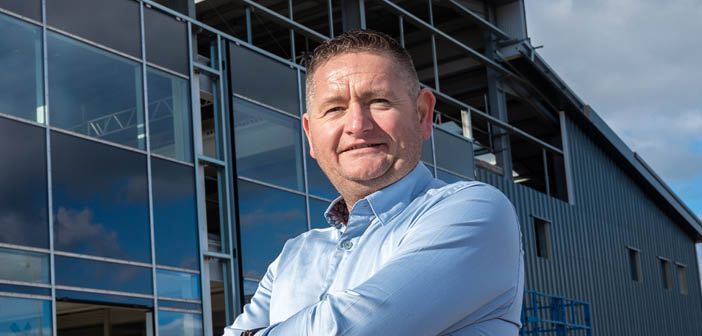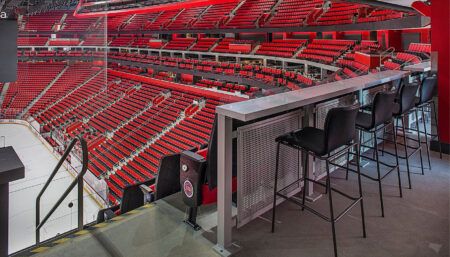Scotland-based company Eco has been developing a solution aimed at enabling stadia and concert venues to welcome crowds back safely once COVID-19 lockdown restrictions ease. The company is in discussions with two football teams – England’s Carlisle United and Scotland’s Annan Athletic – to trial the technologies at their grounds. The English Premier League restarted on 17 June 2020, but all matches are to be held behind closed doors for the time being, with fans watching on TV.
Eco has assembled a range of contamination control technologies, including hygiene portals, testing pods, thermal imaging cameras, biometric face recognition, pre-book scanning systems, and pop-up polytunnels, complete with club colours and crests, to channel the correct flow of people in a one-way crowd control system on the approach to stadia.
“Our solution is to do everything feasible to prevent a virus from getting into a stadium,” said Eddie Black, managing director at Eco. “We are looking at long-term, flexible solutions that will provide contamination control and peace of mind. We will achieve this with a combination of future-proof and adaptable technologies situated outside grounds.”
Black explained that making sure the technologies are good value for money for customers is key. “The health and wellbeing of people is our number-one priority and anyone running a sports club, or any business, knows they are going to have to spend some money to ensure they are doing everything they can to provide a safe environment,” he said. “I also know that they want to put in a solution that is future-proofed so they only have to spend the money once.”
The technologies are designed to be used together for a holistic solution. “The first line of defence are thermal imaging cameras, situated at a location outside the ground, which can detect someone’s temperature,” said Black. “If the camera picks up a high temperature then that person would need to go to a nearby testing pod. Tests will be carried out at the pod and the results will be available within 15-20 minutes. If a person tests positive they will have to comply with all government and public health restrictions in place at that time, such as self-isolation. People who test negative, or who aren’t picked up as having a temperature by the camera, will then proceed to the entrance. But before they get into the ground they will enter a final sanitisation stage. They will walk up to a hygiene portal, which will have a touch-less hand sanitiser dispenser, also activating a fine sanitising mist when people walk through. There will also be a tray to ensure the soles of people’s shoes are sanitised. Then fans will be able to continue into the ground knowing that they and fellow supporters have all gone through the same processes to help keep everyone safe.”
Eco is building its own 3,000m² (32,292ft²) headquarters for 80 employees at Annan in Scotland, where Black is deploying the same technologies to protect the health and wellbeing of his own team. He plans to use all the technologies outside the building, as well as keyless entry, intercomms and antivirus coverings on furniture. “We can reduce the risk massively if we use all these technologies,” said Black. “It’s all about looking after people, and making sure people are as safe as possible.”
Eco’s emergency rapid response solutions division has already been deployed during the COVID-19 outbreak. As well as delivering one million items of PPE to UK care homes within a week, its sanitising solutions have helped to keep a UK factory operational 24/7 while it has been making visor materials for the UK’s healthcare service, the NHS.





